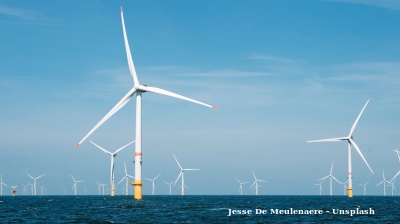More than 1,770 oil sector lobbyists have travelled to the COP29 summit in Baku, Azerbaijan, to try and slow or stop action to reduce the use of fossil fuels, making them the fourth largest delegation at the summit.
Despite repeated calls from scientists for an immediate reduction in fossil fuel consumption, global emissions have reached record levels over the past year. Data reveals that since COP28, the burning of coal, oil, and gas has surged, driven primarily by the United States’ aggressive expansion of fossil fuel production.
The scientific community has warned that the Climate Crisis is accelerating and that emissions are at all-time high levels and still growing. A growing consensus amongst scientists is that keeping to the 1.5C temperature rise Paris Agreements goal is already impossible and that increasingly the 2C rise is also going to be very difficult. Some predict that temperatures are likely to rise by more than 3C by 2050 that will trigger a catastrophic environmental crisis.
At COP28, hosted in Dubai last year, leaders committed to “move away from the burning of fossil fuels.” The declaration was widely lauded as a historic step forward but was criticised by many for its lack of specificity and actionable timelines. In the last year that commitment has been entirely ignored by the Western countries, although China has emerged as t4he green energy global champion by rapidly expanding its renewable energy capacity, followed by India.
COP28 also pledged to triple renewable energy capacity and while a lot of progress in that direction has been made, experts say that the rate of new green capacity roll still needs to accelerate if the goal of tripling green generating capacity is to be met.
Largest delegations highlight contrasting priorities
The host nation, Azerbaijan, leads the largest delegation at COP29, with 2,229 registered participants. Brazil and Turkey follow closely, with 1,914 and 1,862 delegates, respectively. In Africa, Nigeria sent the largest representation with 634 delegates, despite a 55% reduction in its numbers compared to COP28.
The US has registered 405 delegates, ranking 16th in delegation size. The European Union, represented by the European Commission and the Hungarian presidency, leads a delegation of 470 members, placing it 11th in size among participating parties.
But each of the delegations have varied priorities. While some nations advocate for more ambitious climate action, others face criticism for failing to curb fossil fuel production or implement robust policies to transition to renewable energy.
The summit began to wide expectation of disappointment which were quickly borne out after President of Azerbaijan Ilham Aliyev roasted the West for its hypocrisy and double standards, turning what should have been a climate mission statement into a political diatribe underscoring the growing tensions between the G7 and the Global South espoused by Russian President Vladimir Putin.
The fossil fuel sector’s substantial representation at COP29 has sparked intense debate. Advocates for their inclusion argue that the industry’s participation is essential for constructive dialogue on transitioning to cleaner energy sources. Critics, however, view it as a stark conflict of interest, particularly in light of record emissions and expanding production. Climate activist Greta Thunberg, who was barred from attending, held a protest in neighbouring Tbilisi on the first day and lambasted the event as an attempt to “greenwash” climate inaction by governments.
The event got off to a poor start after the delegates held an all-night session to try and fix the agenda for the summit. They failed to put reducing fossil fuel use at the top and instead have fixed on the attempt to increase money available to the Global South for green transition investment from $100bn pledged last year to over $1 trillion.
As COP29 negotiations progress, many are watching closely to see if nations will finally commit to meaningful, enforceable emissions reduction action. The presence of 1,770 oil sector lobbyists, coupled with rising emissions bodes ill. The outlook for effective climate actions looks even less likely with the return of Donald Trump to the US presidency, who has vowed to pull out of the Paris Agreements again and campaigned on a slogan of “drill, baby, drill”.
bneGREEN

The Arctic and Antarctica record "off the charts" heat as polar warming accelerates
Parts of both the Arctic and Antarctic have experienced historically high temperatures in recent weeks, with weather stations in East Antarctica recording record-breaking warmth for the month of October, alarming climate scientists.

Giant glacier chunk breaks away in Tajikistan, mountain villages put on alert
Situation serves as reminder that climate crisis threatens to wreak havoc in Central Asian country.

Singapore’s green pivot – headline grabbing but still limited
Forays into offshore wind via regional cooperation with neighbours, and forward-looking bets on hydrogen and low-carbon fuels are making headlines, but the scale required to wean a heavily gas-dependent system off fossil fuels is still daunting.

North Macedonia's Skopje tackles mounting waste and rodent crisis
Locals say the problems in Skopje's Centar municipality worsened during the local election period when political campaigning took precedence over maintenance.



_seen_here_meeting_with_Congressman_Jimmy_Panetta_201025_Cropped_1760946356.jpg)
